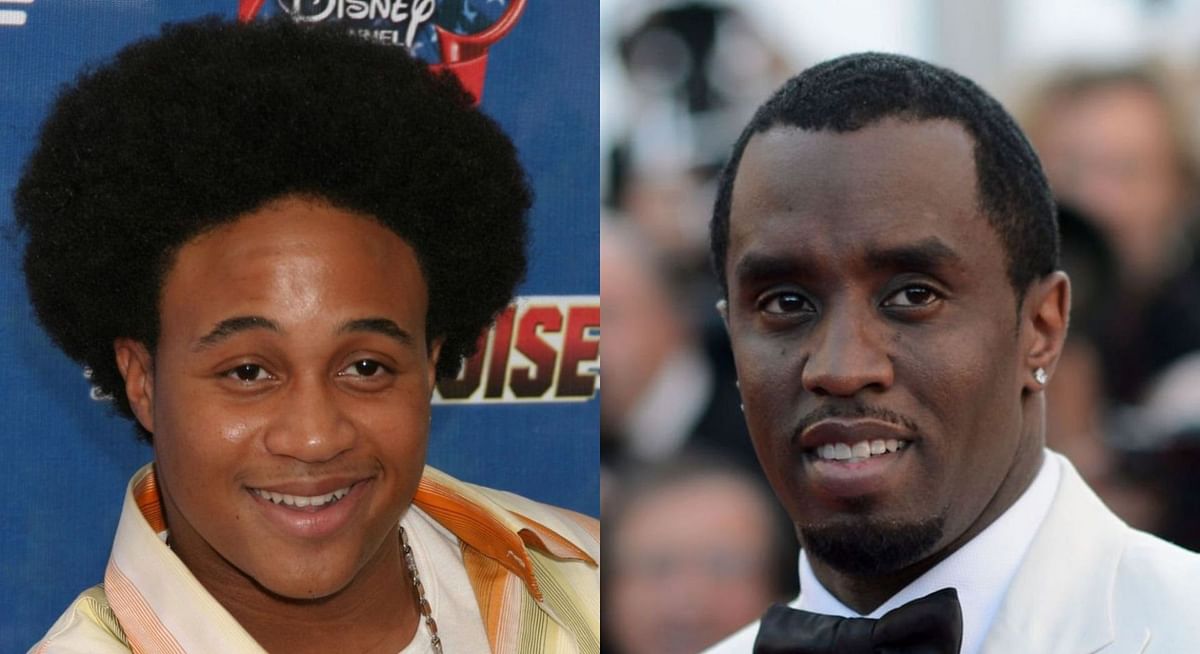Unveiling Orlando Brown's Life: From Fame To Family & Struggles
Is it possible for a life once filled with the vibrancy of childhood stardom to unravel so dramatically? The trajectory of Orlando Brown, a name synonymous with early 2000s television, now serves as a cautionary tale of the perils of fame, substance abuse, and the complexities of mental health.
Born on December 4, 1987, in Los Angeles County, California, USA, Orlando Brown's journey from a young actor to a figure often making headlines for the wrong reasons has been a tumultuous one. Known for his roles as Eddie Thomas in "That's So Raven," Tiger in "Major Payne," and Sticky Webb in "The Proud Family," Brown captured the hearts of a generation. His talent was undeniable, and his charisma shone brightly on screen, but the bright lights of Hollywood can cast long shadows, and the pressures of fame and the allure of various temptations ultimately cast a shadow over his life.
| Category | Details |
|---|---|
| Full Name | Orlando Brown |
| Date of Birth | December 4, 1987 |
| Place of Birth | Los Angeles County, California, USA |
| Occupation | Actor, Rapper, Singer, Director |
| Known For | "That's So Raven," "Major Payne," "The Proud Family" |
| Parents | John and Margaretta Brown |
| Siblings | Clayton and Matthew |
| Marital Status | Married to Danielle Brown |
| Children | Four (acknowledged) |
| Net Worth (2024) | Approximately $500,000 |
| Notable Roles |
|
| Education | Howard D. Woodson High School, South Carolina State University (attended) |
| Reference | IMDB |
Brown's career began to gain momentum, with performances in films like "Major Payne" (1995), where he played the role of Cadet Kevin "Tiger" Dunne, and "Eddie's Million Dollar Cook-Off" (2003), showcasing his versatility. However, even during the height of his success, whispers of personal struggles began to surface. The pressures of the entertainment industry, coupled with the challenges of navigating adolescence and adulthood, seemed to take their toll. Reports of substance abuse and legal issues painted a different picture from the charismatic young actor that fans had come to adore.
- Trending Now Latest Telugu Releases More Refer Earn Gold
- Try Undress Ai Free Today Remove Clothes With Ai
The most recent headlines, however, paint a troubling picture. Reports and interviews portray an individual grappling with significant personal challenges. His appearance on Dr. Phil's show, where he made claims about his full name being "Orlando Brown Prince Michael Jackson, Jr." and mentioning multiple children, raised serious concerns about his mental state. The often-bizarre behavior and the stark contrast between his on-screen persona and off-screen reality led to an outpouring of concern from fans and the public alike. The effects of these struggles are visible, with his public appearances and statements often causing alarm.
Brown's personal life has also been subject to scrutiny. His marriage to Danielle Brown, with whom he is raising a family, offers a glimmer of hope. However, the challenges he faces continue to cast a shadow over his future, making it a case of an artistic life gone through difficulties.
The impact of his childhood fame is a critical aspect of his story. The early success he experienced, while seemingly a blessing, likely brought its own set of pressures. The demands of the entertainment industry, the scrutiny of the public eye, and the challenges of navigating adolescence and adulthood can be overwhelming for anyone, particularly for someone who entered the spotlight at such a young age. The lack of proper support and guidance during these formative years may have left him vulnerable to the pitfalls that ultimately derailed his career and personal life.
- Where To Watch Alternatives Your Guide To Vega Vegamoviesist
- Telugu Cinema Rules Rules Ranjann 2023 Insights
The role of family in Brown's life is another significant factor. While details about his parents, John and Margaretta Brown, are not extensively publicized, his father reportedly played a supportive role in his early acting endeavors. The presence of his siblings, Clayton and Matthew, suggests the importance of family bonds in his formative years. The absence of a strong support system, whether due to circumstances or the challenges inherent in the entertainment industry, may have exacerbated the difficulties he later faced. His upbringing, characterized by early exposure to the demands of Hollywood, combined with the absence of robust support mechanisms, contributed to his personal struggles.
The financial aspects of Brown's life have also been a source of concern. While his net worth is estimated to be around $500,000, a figure earned primarily through his acting and music career, there are indications that he has faced financial difficulties. These struggles, coupled with the emotional and psychological challenges he endures, have painted a bleak picture of his current circumstances.
Brown's legal troubles and substance abuse issues have been well-documented. These problems, often intertwined, have led to numerous arrests and encounters with the legal system. Substance abuse, in particular, has been a recurring theme in his life, and its devastating effects are plainly visible in his present condition. The addiction has not only impacted his health and well-being but has also contributed to his legal problems, financial instability, and strained relationships.
Brown's career, once marked by promise and acclaim, is now a subject of reflection and concern. The performances that once endeared him to audiences, such as his role as Eddie Thomas in "That's So Raven" and his voice work in "The Proud Family," are now tinged with a sense of what could have been. The talent that once seemed destined for greatness is now overshadowed by personal struggles and the difficult trajectory his life has taken.
The future of Orlando Brown and his family remains uncertain. The actor has embarked on a path that will require immense perseverance, resilience, and support. While he has been known to make offbeat and controversial statements, as many of the public have taken note of, it is important to consider the challenges he faces. His situation highlights the need for a comprehensive approach to mental health and addiction, with adequate care and support.
The story of Orlando Brown serves as a stark reminder of the human cost of fame. His journey, marked by early success, personal struggles, and public setbacks, serves as a warning to the pressures of the entertainment industry and the potential for mental health and substance abuse to derail even the most promising lives. It also highlights the importance of support systems, mental health awareness, and the need for compassion and understanding in the face of adversity. It is a story that asks us to reflect on the responsibilities of the entertainment industry, society, and the individual, and what can be done to prevent similar tragedies from happening to other talented and vulnerable young people. The future of Orlando Brown, now, remains to be seen.
Article Recommendations
- Where To Watch Alternatives Your Guide To Vega Vegamoviesist
- Movie News Reviews Bollywood Tollywood More Find On Justwatch



Detail Author:
- Name : Diego Little Sr.
- Username : igrant
- Email : swift.elwyn@considine.com
- Birthdate : 1976-01-26
- Address : 6002 Ebert Centers Goyettetown, NC 67432-3340
- Phone : 408-500-6549
- Company : Batz PLC
- Job : Dentist
- Bio : Molestiae error tempora ex qui et quo. Voluptatem quidem nesciunt ut aut eos. Doloribus aut voluptatem temporibus commodi fugit perspiciatis est quia. Occaecati hic quod praesentium eum a eveniet.
Socials
tiktok:
- url : https://tiktok.com/@carrollh
- username : carrollh
- bio : Quibusdam voluptatem odio quae unde qui optio.
- followers : 282
- following : 2900
twitter:
- url : https://twitter.com/carrollh
- username : carrollh
- bio : Sit eos quidem est iure ipsum numquam voluptatem. Minus qui tempora impedit non a quam. Fugiat rerum nemo tempore. Enim et quidem velit necessitatibus.
- followers : 6122
- following : 776